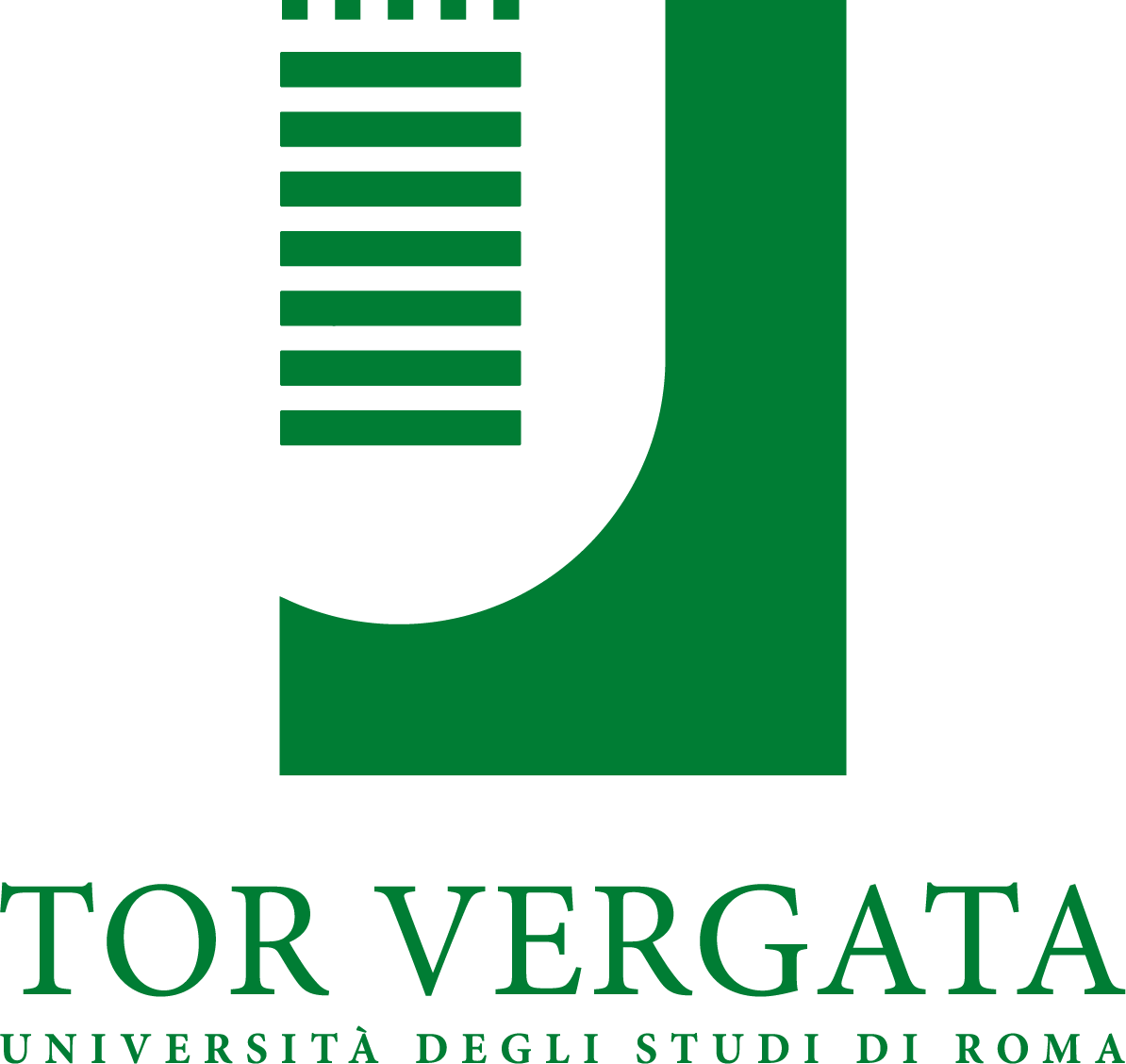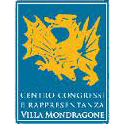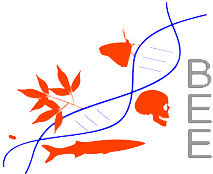Curriculum Vitae
1995 – Degree in Biology with honour, University of Rome “Tor Vergata”.
1995-99 – Ph. D student in Biology and Fisiopathology of epithelium, University of Rome “Tor Vergata”.
2000-2001 – Postdoctoral research Fellow from Istituto Superiore di Sanità.
2001-2006 – Postdoctoral research Fellows from FIRC.
2006 – Postdoctoral research Fellow from University of Rome “Tor Vergata”.
2007 – University researcher University of Rome “Tor Vergata”.
TEACHING
1998-2011 – Professor assistant for “Cytology and Istology”,
2007-2008 – Professor for “Cell colture, genetic engineering and biotecnology application”.
2009-2010 – Professor for “Vectors and biotecnology application”.
2011 – Reasearch grant from Associazione Italiana per la Ricerca sul Cancro (AIRC).
From 2013 – Professor for “Cell death and differentiation”
2014 – “Abilitazione Scientifica Nazionale” as associate Professor.
SOCIETY MEMBERSHIPS: European Cell Death Organization (ECDO).
Journal reviewer for: Oncogene, Cancer Letters, Cancer Research, Apoptosis, JBB, Neuroscience, GENE, Cell Death and Differentiation.
GRANTS
MFAG 2011 “Reticulon1-C: multifunctional roles and therapeutic potential in cancer disease”. Associazione Italiana per la Ricerca sul Cancro (AIRC).
EURO 150.000 (December 2011- December 2014)
SCIENTIFIC ACTIVITY
- molecular mechanisms of apoptotic cell death;
- endoplasmic reticulum stress in cancer cell death;
- endoplasmic reticulum stress in neurodegeneration;
- role of reticulon1-C in endoplasmic reticulum stress pathway and in the cellular response to anticancer drugs;
- role of reticulon1-C in neurodegeneration;
- role of autophagy in apoptotic defective cancer cell lines;
- crosstalk between endoplasmic reticulum and mitochondria.
Selected publications:
1. Di Sano F, Di Bartolomeo S, Fazi B, Fiorentini C, Matarrese P, Spinedi A, Piacentini M (2002) Antisense to glucosylceramide synthase in human neuroepithelioma affects cell growth but not apoptosis. Cell Death Differ.9(6):693-5.
2. Di Sano F, Fazi B, Citro G, Lovat PE, Cesareni G, Piacentini M (2003) Glucosylceramide synthase and its functional interaction with RTN-1C regulate chemotherapeutic-induced apoptosis in neuroepithelioma cells. Cancer Res. 63(14):3860-5.
3. Lovat PE, Di Sano F, Corazzari M, Fazi B, Donnorso RP, Pearson AD, Hall AG, Redfern CP, Piacentini M (2004) Gangliosides link the acidic sphingomyelinase-mediated induction of ceramide to 12-lipoxygenase-dependent apoptosis of neuroblastoma in response to fenretinide. J Natl Cancer Inst.96(17):1288-9.
4. Corazzari M, Lovat PE, Oliverio S, Di Sano F, Donnorso RP, Redfern CP, Piacentini M (2005) Fenretinide: a p53-independent way to kill cancer cells. Biochem Biophys Res Commun. 331(3):810-5.
5. Lovat PE, Corazzari M, Di Sano F, Piacentini M, Redfern CP (2005) The role of gangliosides in fenretinide-induced apoptosis of neuroblastoma. Cancer Lett. 228(1-2):105-10.
6. Di Sano F, Ferraro E, Tufi R, Achsel T, Piacentini M, Cecconi F (2006) Endoplasmic reticulum stress induces apoptosis by an apoptosome-dependent but caspase 12-independent mechanism. J Biol Chem. 281(5):2693-700.
7. Fazi B, Melino S, Di Sano F, Cicero DO, Piacentini M, Paci M (2006) Cloning, expression, and preliminary structural characterization of RTN-1C. Biochem Biophys Res Commun. 342(3):881-6.
8. Di Sano F, Fazi B, Tufi R, Nardacci R, Piacentini M (2007) Reticulon-1C acts as a molecular switch between endoplasmic reticulum stress and genotoxic cell death pathway in human neuroblastoma cells. J Neurochem.102(2):345-53.
9. Tufi R, Panaretakis T, Bianchi K, Criollo A, Fazi B, Di Sano F, Tesniere A, Kepp O, Paterlini-Brechot P, Zitvogel L, Piacentini M, Szabadkai G, Kroemer G (2008) Reduction of endoplasmic reticulum Ca2+ levels favors plasma membrane surface exposure of calreticulin.Cell Death Differ. 15(2):274-82.
10. Klionsky DJ, Abeliovich H, Agostinis P, Agrawal DK, Aliev G, Askew DS, Baba M, Baehrecke et al. (2008) Guidelines for the use and interpretation of assays for monitoring autophagy in higher eukaryotes. Autophagy. 4(2):151-75.
11. Fazi B, Bursch W, Fimia GM, Nardacci R, Piacentini M, Di Sano F, Piredda L (2008) Fenretinide induces autophagic cell death in caspase-defective breast cancer cells. Autophagy 4(4):435-41.
12. Bursch W, Karwan A, Mayer M, Dornetshuber J, Fröhwein U, Schulte-Hermann R, Fazi B, Di Sano F, Piredda L, Piacentini M, Petrovski G, Fésüs L, Gerner C (2008) Cell death and autophagy: cytokines, drugs, and nutritional factors. Toxicology. 254(3):147-57.
13. Fazi B, Melino S, De Rubeis S, Bagni C, Paci M, Piacentini M, Di Sano F (2009) Acetylation of RTN-1C regulates the induction of ER stress by the inhibition of HDAC activity in neuroectodermal tumors. Oncogene. 29;28(43):3814-24.
14. Fazi B, Biancolella M, Mehdawy B, Corazzari M, Minella D, Blandini F, Moreno S, Nardacci R, Nisticò R, Sepe S, Novelli G, Piacentini M, Di Sano F (2010) Characterization of gene expression induced by RTN-1C in human neuroblastoma cells and in mouse brain. Neurobiol 40(3):634-44.
15. Bernardoni P, Fazi B, Costanzi A, Nardacci R, Montagna C, Filomeni G, Ciriolo MR, Piacentini M, Di Sano F (2013) Reticulon1-C modulates protein disulphide isomerase function. Cell Death Dis. 4:e581. doi: 10.1038/cddis.2013.113.
16. Di Sano F, Bernardoni P, Piacentini M (2012) The reticulons: guardians of the structure and function of the endoplasmic reticulum. Exp Cell Res. 318(11):1201-7.
17. Di Sano F, Piacentini M (2012) Reticulon Protein-1C: A New Hope in the Treatment of Different Neuronal Diseases. Int J Cell Biol. 651805. doi: 10.1155/2012/651805.
18. Bernardoni P, Fazi B, Costanzi A, Nardacci R, Montagna C, Filomeni G, Ciriolo MR, Piacentini M, Di Sano F (2013) Reticulon1-C modulates protein disulphide isomerase function.Cell Death Dis. 4:e581. doi: 10.1038/cddis.2013.113.
LINKS
Department of Biology
University of Rome “Tor Vergata”
Via della Ricerca Scientifica 00133
Rome Italia
+39 06 7259 4232
e-mail: federica.di.sano@uniroma2.it
Research group and contacts
Valentina Reali (Assegnista) valentina1983v@libero.it
Maria Giuditta Petullà (Laureanda) giuditta.petulla@hotmail.it






Università di Tor Vergata